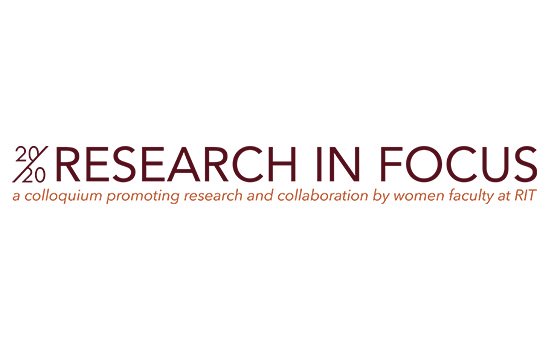Program highlights sustaining natural resources
Three faculty-researchers discuss research and teaching innovations toward a resilient food supply and population growth
As populations grow, society is challenged with how to provide a “resilient” food supply.
Addressing the impact of population growth on food supplies, the environment and health will be the subject of the upcoming “20/20 Research in Focus Colloquium—Sustenance.” The event takes place from 3:30 to 5 p.m. on Wednesday, Nov. 9, in the Golisano Institute for Sustainability.
The program is free and open to campus faculty, staff and students. Discussion will center on population growth and a shrinking pool of natural resources, as well as the connections between food supply and security, energy and water, economy and environment and the impact on individual’s health.
“20/20 Research in Focus,” a new research-focused information and networking series sponsored by an Advance RIT Connect grant, is one of several initiatives being led by RIT’s Council for the Representation and Engagement of Women (CREW) faculty to highlight the university’s commitment to faculty career development, including research being done by female faculty.
Featured at the Sustenance program are:
- Gabrielle Gaustad, associate professor of sustainability in the Golisano Institute for Sustainability. Her presentation, “Satisfying Society’s Technology Cravings,” is an exploration of how rapid adoption of emerging technologies has led to new concerns about the ability to sustain production of “technical nutrients” — such as critical minerals and rare earth elements that are essential for human life and the economy.
- Pamela Berkeley, instructional/support faculty, engineering studies at the National Technical Institute for the Deaf, will explain how themes from food and cooking can be used to teach engineering concepts and how these nourished engineers can then design buildings that sustain human life while minimizing the environmental footprint of the built environment in her presentation, “Feeding Hungry Minds.”
- Elizabeth Ruder, assistant professor, College of Health Science and Technology, will talk about “Meeting the NEEDs of Rochester Families.” Her focus is on the research and outreach of the Nutrition Education Engineering and Design, or “NEEDs” Center, including “NEEDs for Tots” program, an evidence-based curriculum designed to educate children, parents and preschool providers about shared family mealtime, the importance of food-neutral mealtime conversation, the way to accept and refuse foods and the need to trust each person to manage his/her own eating.
Barriers to advancement for female faculty are often related to issues of career navigation, environment and work/life balance. In career navigation, advancement toward tenure and promotion relies, in part, on research and scholarship. CREW is charged with helping women develop support networks, partake of mentor activities and with fostering an environment of professional and academic success, including building strong research platforms. RIT has been working over the past several years through CREW and Advance RIT to promote strategies for career success of female faculty at the university.
Betsy Dell, RIT faculty associate for women, is chair of CREW, which is made up of individuals representing all of RIT’s colleges as well as the offices of Diversity and Inclusion, Faculty Recruitment and Advance RIT. Dell is also an associate professor in the manufacturing and mechanical engineering technology department in RIT’s College of Applied Science and Technology.
The “20/20 Research in Focus” series will continue throughout the academic year. More information about the current or upcoming programs can be found online or by contacting Erica Hickey at elh4312@rit.edu. Interpreting services available, resources provided, at myaccess.rit.edu. Networking takes place after the main presentation; refreshments will be served.








